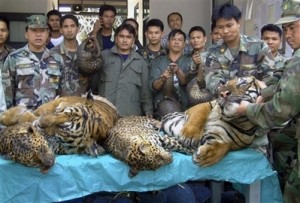 As a kid, I remember having several brightly colored rabbit foot key chains given to me as good luck tokens.
As a kid, I remember having several brightly colored rabbit foot key chains given to me as good luck tokens.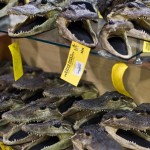 Traveling through the south eastern United States, it is still commonplace to see stuffed baby alligators, or the preserved severed heads of juveniles, for sale at welcome centers and gift shops. Baby sharks with an icy death stare, glaring out of alcohol-filled jars adorn service stations and restaurant counters. And who hasn’t seen the spider or scorpion suspended in acrylic paper weights.
Traveling through the south eastern United States, it is still commonplace to see stuffed baby alligators, or the preserved severed heads of juveniles, for sale at welcome centers and gift shops. Baby sharks with an icy death stare, glaring out of alcohol-filled jars adorn service stations and restaurant counters. And who hasn’t seen the spider or scorpion suspended in acrylic paper weights.
Wildlife is under constant threat from humans. As human population increases, the 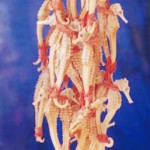 demand for resources necessary for survival increases. Human encroachment into wild areas for livelihood or industry is happening at an alarming rate in both developed and developing countries, destroying what little habitat is left. To add insult to injury, wildlife are being killed, illegally poached, for bushmeat, ivory, fashion (skins, furs, teeth, and bone), Ancient Chinese Medicine “remedies” and souvenirs, to name a few.
demand for resources necessary for survival increases. Human encroachment into wild areas for livelihood or industry is happening at an alarming rate in both developed and developing countries, destroying what little habitat is left. To add insult to injury, wildlife are being killed, illegally poached, for bushmeat, ivory, fashion (skins, furs, teeth, and bone), Ancient Chinese Medicine “remedies” and souvenirs, to name a few.
Every year, tons of elephant ivory, rhino horn, tiger bones and skin, turtle shells, reptile skins, live animals and bushmeat are found, concealed in a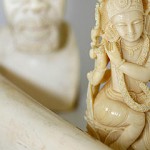 variety of ways, being smuggled into and out of countries all around the world. What about those items that are not found? Did you know that the trade in illegal wildlife products, whether just body parts or live animals, is the third biggest illegal industry in the world behind weapons and drugs?! Poaching and subsequent smuggling of illegal wildlife products is a multi-billion dollar industry.
variety of ways, being smuggled into and out of countries all around the world. What about those items that are not found? Did you know that the trade in illegal wildlife products, whether just body parts or live animals, is the third biggest illegal industry in the world behind weapons and drugs?! Poaching and subsequent smuggling of illegal wildlife products is a multi-billion dollar industry.
 I urge everyone traveling to please be aware of what you buy and eat. It is very tempting to purchase a souvenir, or to try local cuisine all the while not knowing the cost to local wildlife and habitat. For example, while traveling to Indonesia, China and Japan resist sampling Shark Fin soup. Unfortunately, it is the continual negative actions of tourists that can spur some illegal activities that threaten wildlife. The unfortunate part is that the local people that are poaching and collecting wildlife for this disastrous trade are just trying to earn well needed money to survive. We all have a choice and can make a difference; it all begins with conscious consumerism. It is just as important what we choose not
I urge everyone traveling to please be aware of what you buy and eat. It is very tempting to purchase a souvenir, or to try local cuisine all the while not knowing the cost to local wildlife and habitat. For example, while traveling to Indonesia, China and Japan resist sampling Shark Fin soup. Unfortunately, it is the continual negative actions of tourists that can spur some illegal activities that threaten wildlife. The unfortunate part is that the local people that are poaching and collecting wildlife for this disastrous trade are just trying to earn well needed money to survive. We all have a choice and can make a difference; it all begins with conscious consumerism. It is just as important what we choose not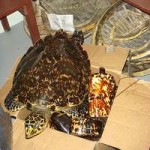 to do, as what we choose to do.
to do, as what we choose to do.
It is important to understand that products made from wildlife should never be an option. Sometimes it is done obliviously, but more times than not it is intentional that animal parts are purchased as souvenirs. There is no need to give animals, alive or in pieces, as gifts. Please educate yourselves.
For more information on the Illegal Wildlife Trade please visit The Wildlife Trade Monitoring Network at www.traffic.org